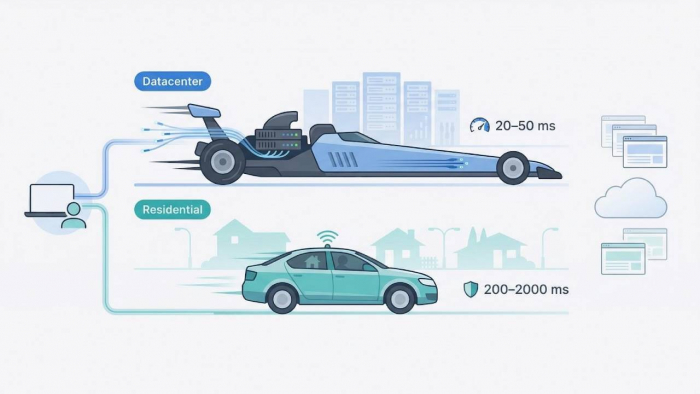The customer service landscape has undergone a dramatic transformation in recent years, with artificial intelligence emerging as the driving force behind this evolution. Companies worldwide are recognizing that traditional support methods are no longer sufficient to meet modern customer expectations for instant, personalized, and round-the-clock assistance. This shift has created an unprecedented demand for sophisticated ai development services that can deliver intelligent, scalable solutions.
The AI Revolution in Customer Support
Artificial intelligence has fundamentally changed how businesses approach customer service. Gone are the days when customers would accept waiting hours for email responses or being placed on hold for extended periods. Today's consumers expect immediate assistance, and AI-powered systems are uniquely positioned to deliver this level of service excellence.
The integration of AI into customer service operations represents more than just technological advancement; it's a strategic business transformation. Organizations that have embraced AI-driven customer service solutions report significant improvements in customer satisfaction scores, reduced operational costs, and enhanced agent productivity. These benefits stem from AI's ability to process vast amounts of data instantly, understand customer intent with remarkable accuracy, and provide consistent, high-quality responses regardless of the time of day or volume of inquiries.
Understanding Modern Customer Service Challenges
Before exploring AI solutions, it's crucial to understand the challenges that modern customer service teams face. The digital age has brought increased customer expectations alongside growing business complexity. Customers interact with brands across multiple channels – social media, email, chat, phone, and mobile apps – expecting seamless experiences regardless of the platform they choose.
Customer service teams often struggle with high volumes of repetitive inquiries that consume valuable time and resources. Agents spend significant portions of their workday handling routine questions about account balances, order status, password resets, and basic troubleshooting. This leaves less time for complex problem-solving and relationship building, which are areas where human agents truly excel.
Seasonal fluctuations and unexpected spikes in customer inquiries can overwhelm support teams, leading to longer wait times and frustrated customers. Traditional scaling approaches, such as hiring temporary staff or extending work hours, are often expensive and inefficient. These challenges create a compelling case for AI-powered solutions that can handle routine tasks while empowering human agents to focus on high-value interactions.
Core AI Technologies Revolutionizing Customer Service

Natural Language Processing represents the foundation of modern AI customer service solutions. This technology enables systems to understand, interpret, and respond to customer inquiries in natural language, whether written or spoken. Advanced NLP algorithms can detect sentiment, identify intent, and extract relevant information from customer messages, allowing for more accurate and contextually appropriate responses.
Machine Learning algorithms continuously improve system performance by learning from each customer interaction. These systems become more accurate over time, adapting to changing customer needs, emerging trends, and evolving business requirements. The self-improving nature of ML-powered customer service solutions means that organizations benefit from increasingly sophisticated assistance without constant manual updates or retraining.
Conversational AI and chatbot technologies have evolved far beyond simple rule-based systems. Modern conversational AI can handle complex, multi-turn conversations, maintain context throughout extended interactions, and seamlessly escalate issues to human agents when necessary. These systems can integrate with existing business systems to access customer data, process transactions, and provide personalized assistance.
Implementation Strategies for AI Customer Service Solutions
Successful AI implementation in customer service requires careful planning and strategic thinking. Organizations must begin by clearly defining their objectives and identifying specific use cases where AI can deliver the greatest impact. This typically involves analyzing current support metrics, identifying pain points, and determining which processes would benefit most from automation.
Data preparation forms a critical foundation for any AI customer service initiative. Historical customer interactions, support tickets, frequently asked questions, and customer feedback provide the training data necessary for AI systems to understand your specific business context and customer needs. Quality data preparation ensures that AI systems can deliver accurate, relevant responses from day one.
Integration with existing systems presents both opportunities and challenges. Modern AI customer service solutions must work seamlessly with CRM systems, knowledge bases, ticketing platforms, and other business applications. This integration enables AI systems to access complete customer histories, process transactions, and provide comprehensive assistance while maintaining data consistency across all touchpoints.
Measuring Success: Key Performance Indicators
The true value of AI-powered customer service becomes evident when examining performance metrics across organizations that have successfully implemented these technologies. Industry benchmarking studies, including comprehensive research from Talkdesk's Global Contact Center KPI Benchmarking Report 2024 and Peak Support's analysis of AI Chatbot Resolution Rates, demonstrate remarkable improvements across all critical performance indicators. These improvements are not marginal gains but transformational changes that fundamentally alter the customer service landscape.
| Metric | Traditional Service | AI-Enhanced Service | Improvement Range |
| First Response Time | 4-24 hours | Instant - 2 minutes | 95-99% reduction |
| Resolution Rate | 65-75% | 85-95% | 20-30% increase |
| Customer Satisfaction | 3.2-3.8/5 | 4.2-4.7/5 | 25-35% increase |
| Agent Productivity | 15-25 tickets/day | 35-50 tickets/day | 100-150% increase |
| Operational Cost | Baseline | 30-50% reduction | Significant savings |
The measurement of AI customer service success extends beyond traditional metrics to include new indicators that reflect the unique capabilities of intelligent systems. Response accuracy measures how often AI systems provide correct, helpful answers to customer inquiries. This metric is crucial for maintaining customer trust and ensuring that automation actually improves the customer experience rather than creating frustration.
Customer effort score becomes particularly important in AI-powered environments, as the goal is to make customer interactions as effortless as possible. AI systems should reduce the number of steps customers need to take to resolve their issues, eliminate the need for customers to repeat information across channels, and provide proactive assistance before customers even realize they need help.
Advanced AI Capabilities and Features
Predictive analytics represents a significant advancement in AI customer service capabilities. By analyzing historical data patterns, customer behavior, and external factors, AI systems can anticipate customer needs and proactively reach out with helpful information or solutions. This proactive approach transforms customer service from a reactive function to a strategic business capability that drives customer satisfaction and loyalty.
Sentiment analysis enables AI systems to understand not just what customers are saying, but how they feel about their experiences. This emotional intelligence allows for more empathetic responses and helps identify customers who may be at risk of churning. When AI systems detect negative sentiment, they can adjust their responses accordingly or escalate the conversation to human agents who specialize in handling difficult situations.
Omnichannel capabilities ensure that customers receive consistent experiences regardless of how they choose to interact with your business. AI systems can maintain context across email, chat, social media, and phone interactions, allowing customers to start conversations on one channel and continue them on another without having to repeat information or start over.
Security and Compliance Considerations
Data security takes on heightened importance when implementing AI customer service solutions. These systems often handle sensitive customer information, payment data, and personal details that require robust protection. Advanced encryption, secure data transmission, and compliance with regulations such as GDPR, CCPA, and industry-specific requirements are essential components of any AI customer service implementation.
Privacy by design principles should guide every aspect of AI system development and deployment. This means implementing data minimization practices, providing clear transparency about how customer data is used, and giving customers control over their information. Trust forms the foundation of successful customer relationships, and maintaining this trust requires unwavering commitment to data security and privacy.
Future Trends and Innovations
The future of AI in customer service points toward even more sophisticated and personalized experiences. Emotional AI will enable systems to detect and respond to customer emotions with greater nuance, providing more empathetic and appropriate assistance. Voice AI capabilities are becoming increasingly sophisticated, enabling natural, conversational interactions that rival human communication quality.
Integration with emerging technologies such as augmented reality and virtual reality will create new possibilities for customer support, particularly for complex products or services that benefit from visual demonstration or hands-on guidance. These immersive technologies, powered by AI, will enable support experiences that were previously impossible.
Cost-Benefit Analysis of AI Implementation
Understanding the financial implications of AI customer service implementation requires examining both upfront investments and long-term returns. Research from leading analytics firms provides clear insight into the economic impact of these technologies. IBM Institute for Business Value's comprehensive study on maximizing AI ROI reveals that organizations typically see positive returns within the first year of implementation, while McKinsey's latest analysis demonstrates how companies are successfully rewiring their operations to capture substantial value from AI investments.
The following analysis, supported by data from Harvard Business Review's examination of AI's impact on customer service ROI and comprehensive benchmarking reports, illustrates the typical cost structure and expected returns across different implementation areas.
| Investment Area | Initial Cost | Annual Savings | ROI Timeline |
| Platform Development | $50,000-$200,000 | $150,000-$500,000 | 6-12 months |
| Integration & Training | $25,000-$75,000 | $100,000-$300,000 | 8-15 months |
| Ongoing Maintenance | $15,000-$50,000 | $200,000-$600,000 | Continuous |
| Staff Optimization | Variable | $100,000-$400,000 | 3-6 months |
The financial impact of AI customer service implementation extends beyond simple cost reduction to include revenue enhancement opportunities. Improved customer satisfaction leads to increased retention rates, higher customer lifetime value, and positive word-of-mouth referrals. AI systems can also identify upselling and cross-selling opportunities during customer interactions, generating additional revenue while providing valuable assistance.
Industry-Specific Applications
Different industries face unique customer service challenges that require specialized AI solutions. E-commerce businesses benefit from AI systems that can handle order tracking, return processing, and product recommendations. Healthcare organizations require AI solutions that can navigate complex privacy regulations while providing accurate health information and appointment scheduling.
Financial services companies leverage AI for fraud detection, account management, and personalized financial advice. Telecommunications providers use AI to troubleshoot technical issues, manage service upgrades, and handle billing inquiries. Each industry requires customized approaches that understand specific regulatory requirements, customer expectations, and business processes.
Why SCAND Is Your Ideal AI Development Partner
Selecting the right development partner for your AI customer service initiative can determine the success or failure of your project. SCAND brings over two decades of experience in delivering cutting-edge technology solutions, with a specialized focus on AI development services that transform customer experiences.
Our team of expert AI engineers, data scientists, and customer experience specialists understands the unique challenges facing modern businesses. We don't just build AI systems; we create comprehensive solutions that integrate seamlessly with your existing infrastructure while delivering measurable business results. Our proven methodology combines technical excellence with deep industry knowledge, ensuring that your AI customer service solution addresses real business needs rather than simply implementing the latest technology trends.
SCAND's commitment to quality extends throughout every phase of development, from initial consultation and requirements gathering through deployment and ongoing optimization. We understand that AI customer service systems must be reliable, scalable, and continuously improving to deliver long-term value. Our comprehensive support model ensures that your AI solution evolves with your business needs and continues delivering exceptional customer experiences.
Conclusion
The transformation of customer service through AI represents one of the most significant business opportunities of our time. Organizations that embrace these technologies today position themselves for sustained competitive advantage, improved customer relationships, and enhanced operational efficiency. The key to success lies in partnering with experienced developers who understand both the technical complexities of AI implementation and the strategic importance of customer experience excellence.
As customer expectations continue to evolve and technology capabilities advance, the businesses that thrive will be those that view AI not as a replacement for human interaction, but as a powerful tool that enhances and amplifies the best aspects of customer service. The future belongs to organizations that can seamlessly blend artificial intelligence with human expertise to create customer experiences that are both highly efficient and genuinely empathetic.
Post Comment
Be the first to post comment!





